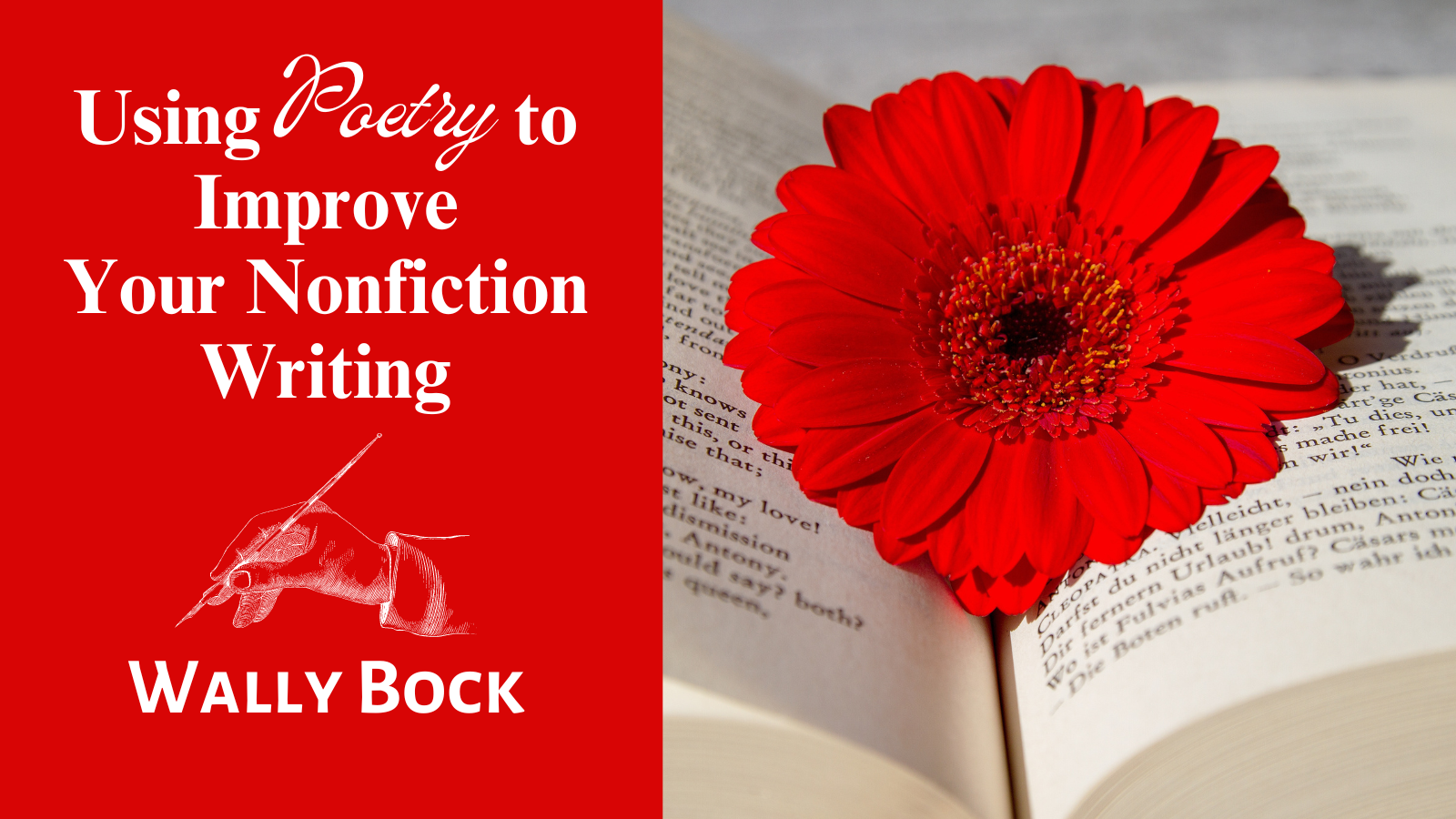“Poetry is language at its most distilled and most powerful.”
~ Rita Dove
Good news! You don’t have to let poets have all the fun. You can use poetry to make your language stronger and your descriptions more vivid. I know this because I wanted to be a poet once.
When the earth and I were young, my goal was to become a great poet. I worked at it. Every night, I sat down with my pad of paper and two coffee cans. Each can contained slips of paper. One can held slips for forms of poetry, such as sonnet, villanelle, and so forth. The other can held subjects such as love, frustration, and the like.
I picked one slip from each can, then wrote a poem in the form for the day on the subject for the day. Sometimes, things went well. Other times, I toiled into the night and finally gave up. Ultimately, I gave up the quest to become a great poet because I realized it would never happen. No matter how hard I worked, greatness would elude me. I might become good, but I could never become great.
I still read and write poetry today. I love it. Poetry has improved my writing, and it can improve yours.
Enrich Your Mental Models
When we read good writing, we develop a mental model for judging our writing. Reading poetry enriches that model. As Rita Dove said, “Poetry is language at its most distilled and most powerful.”
Sharpen Your Descriptions
Great poetry includes vivid descriptions. Take this example from Seamus Heaney’s poem “Digging.”
“Under my window, a clean, rasping sound
When the spade sinks into gravelly ground”
Add Power With Poetic Devices
William Zinsser said that all writing was for the ear. Poetic devices help you create prose that “sounds” richer and more powerful. Poetry activates the same parts of the brain as music, and those parts of the brain are also associated with emotional processing. Notice the ways that poets use and arrange words.
This stuff is not new. When Ben Franklin was a teenager and learning to write well, he studied the essays of Addison and Steele in The Spectator. One of his writing exercises was to attempt to rewrite an essay without looking at the original. Another exercise was to turn the original essay into poetry and then back into prose.
There’s no need to follow Ben Franklin’s example and turn this into a major self-development project. The goal is not to turn you into a poet. Instead, it’s to make poetry part of the mental models you use when you write.
Read some poetry. If this is new to you, start with an anthology. Dip into it from time to time. Notice sharp descriptions and evocative word choices. Copy out the ones that speak to you.
If you want to go further, try writing some poetry yourself. You don’t have to show it to anyone, and the exercise will give you a feel for how your language can become its “most distilled and most powerful.”
